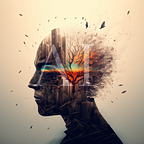The Fascinating History of Artificial Intelligence: From Ancient Myth to Modern Reality
Artificial intelligence (AI) is a hot topic today, with companies and researchers racing to develop the most advanced and sophisticated AI systems. But the idea of creating intelligent machines is not a new one. In fact, the concept of artificial intelligence has a rich and fascinating history dating back centuries. In this article, we’ll explore the evolution of AI from ancient myth to modern reality, highlighting key milestones and influential figures along the way.
The earliest recorded idea of artificial intelligence can be traced back to ancient Greek mythology. In the story of Pygmalion, a sculptor named Pygmalion falls in love with a statue he has created which the gods eventually bring to life. This tale captures the idea of creating life from inanimate objects, a theme that would be revisited in AI research centuries later.
Fast forward to the 1800s, and we see the first glimpses of what we would recognize as modern AI. In 1837, Charles Babbage designed the Analytical Engine, a mechanical device that could perform mathematical calculations. While the Analytical Engine was never built, it is considered to be the first concept for a programmable computer.
In the 1950s, the term “artificial intelligence” was coined by computer scientist John McCarthy. This was also around the time that the first AI research program was launched at Dartmouth College. The goal of the program was to investigate the question: “Can a machine think and behave intelligently?” Researchers focused on creating AI systems that could perform tasks such as problem-solving and natural language processing.
One of the most significant milestones in AI history occurred in 1997, when IBM’s Deep Blue supercomputer defeated world chess champion Garry Kasparov in a highly publicized match. This marked the first time a computer had beaten a human at a task requiring high levels of strategy and analytical thinking.
Today, AI has become an integral part of our daily lives. From voice assistants like Siri and Alexa to self-driving cars, AI is changing the way we live and work. And with the rapid advancements in machine learning and neural networks, the possibilities for what AI can achieve are endless.
The history of artificial intelligence is a long and fascinating one, filled with twists and turns and the contributions of many brilliant minds. From its roots in ancient mythology to its current status as a driving force in modern technology, AI has come a long way. And as AI continues to evolve and push the boundaries of what is possible, it will be exciting to see what the future holds.
If you want to learn more about Artificial Intelligence, I recommend ‘Artificial Intelligence: A Modern Approach’ by Stuart J. Russell and Peter Norvig
This article contains affiliate links.
